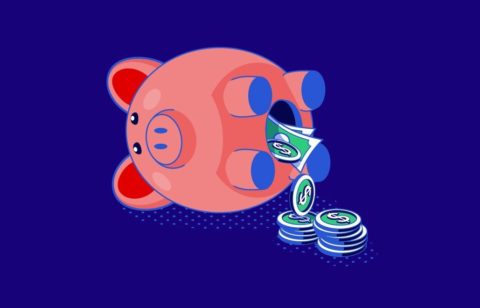Debt consolidation can make debt manageable, but it can also make your head spin. Is it the right move for getting out of debt? Or is it just plain confusing?
We put together some frequently asked questions and tried to answer them as simply as possible so that you can get the answers you need. If you’re struggling with debt in Las Vegas or anywhere in the country and you’re weighing your options, read on to learn the ins and outs of debt consolidation.
What is debt consolidation?
Simply put, debt consolidation combines all of your debt into a single monthly payment. There are three basic benefits to this:
- You only have to worry about one payment and one due date instead of several;
- With a single monthly payment, you may lower the overall amount that you pay towards your debt each month;
- You may also reduce the amount of interest that you pay on your debt over time.
Sounds pretty great, right? While debt consolidation isn’t a perfect solution for every single person with debt, it can make a huge difference to those juggling a ton of different monthly payments.
How does the debt consolidation process work?
It depends on the type of consolidation you get.
Loans
With some companies, you take out a large loan that allows you to pay off all of your creditors at once. This debt consolidation loan could be a home equity loan, though it doesn’t have to be.
Taking out a loan seems simple, but it has its pitfalls. Debt consolidation loans come with the same kinds of risks that other forms of debt come with, and interest rates are often high. They may also be treating the symptom, not the cause. If you keep your credit cards open and run up more debt after consolidating, you’ll be worse off than when you started.
Non-Loan Options
There are a variety of options for consolidating your debt that don’t involve loans. Generally, these entail making an arrangement with a debt consolidation company that can work on your behalf. These companies help you to build up funds and control your spending while negotiating with your creditors on your behalf. It’s not as simple a solution as just taking out a loan to pay off your debts, but it can be more sustainable – you develop better spending habits and at the end of the program, and you’re debt-free.
What’s the difference between a secured and an unsecured debt consolidation loan?
A secured loan has collateral behind it, like a home or a car. The presence of collateral means that interest rates tend to be lower since there’s less risk for the lender. If you fall behind on your payments and default, that collateral becomes fair game for the creditor.
Unsecured loans aren’t connected to your assets. That means that the interest rates tends to be higher.
While you should always keep up on your payments, not everyone can, and they wonder: should they pay their secured or unsecured loans first?
Secured loans are tied to material assets, so if you don’t pay these accounts, there’s a chance you could lose what you used as collateral (e.g. your home). But unsecured loans with higher interest rates can leave you swimming in a ton of debt if they aren’t taken care of. Manage your payments wisely.
How does debt consolidation result in lower monthly payments?
Debt consolidation doesn’t always result in a lower monthly payment for you, but it often does. That’s because of potential differences in interest rates.
Say you live in Las Vegas and you’ve gotten too used to buying things on credit. You’ve run up debt on three different credit cards with three different interest rates: 10%, 15%, and 20%.
If you consolidate all of that debt and end up paying a 13% interest rate, you’re saving money on monthly payments because you’re not stuck paying any more interest than you have to.
What are the pros of debt consolidation?
Debt consolidation has helped a lot of people get out from under a lot of debt. The pros are simple:
- Lower interest rates in debt consolidation can save you a ton of money over time.
- More money in your pocket means you can pay off your debt faster.
- Fewer monthly payments can make paying off debt feel more manageable.
- Certain debt consolidation programs mandate that you develop more responsible spending habits.
In all, debt consolidation may enable you to save money, pay off your debt sooner and become a more financially responsible individual.
What are the cons of debt consolidation?
Debt consolidation is not for everyone. It works best for people who are willing and able to get their spending in line and get out from under the burden of debt. For individuals who don’t fit that description, there are disadvantages of debt consolidation, including:
- Without responsible spending habits, you may end up more deeply in debt.
- If you can’t follow through with the program, you won’t see any real benefits.
- If you choose to take out a debt consolidation loan and can’t keep up with it, you’ll have to face any consequences of not being able to pay it off.
Can debt consolidation affect my credit score?
If you opt for a loan in order to consolidate your debt, then it may affect your credit.
Taking out a loan requires a creditor to take a hard inquiry into your credit in order to determine your creditworthiness. The process is different from how you’d check your own credit score and it can cause your score to go down.
Some debt consolidation companies may also require you to close your credit accounts in order to control spending and ensure that you don’t run up any further debt as you go through the process of paying your current debt off. Closing credit accounts can negatively affect your credit score, though a temporary dip to your credit is generally preferable to a lifetime of debt.
That said, debt consolidation can have a positive effect on your credit score as well. In general, less debt means stronger credit. As long as you can keep from running up your debt again, it could be positive for your score.
Is debt consolidation an option for people with bad credit?
Short answer: yes. Long answer: yes, but it’s not always easy.
If you’re seeking a debt consolidation loan from a bank, you might be out of luck. Banks and credit unions do offer personal loans to help borrowers consolidate their debt, but they’re choosier about who they lend to.
Debt consolidation companies are often a little less stringent. Some will offer loans to individuals with less-than-perfect credit. Others companies that don’t offer loans may be less concerned about your creditworthiness and more concerned with your ability to stick to a debt consolidation program.
Will working with a debt consolidation company help to stop harassment from creditors?
One of the most draining parts of being in debt isn’t actually keeping up with the payments. It’s falling behind and having to deal with harassing letters and calls from creditors who want to scare you into taking action.
Debt consolidation companies can help you to deal with this situation, at least partially.
If you get a debt consolidation loan and are able to pay off your debt in a relatively short amount of time, then your creditors won’t have a reason to keep harassing you.
If you’re better suited to working with a debt consolidation company, then that company may help you to deflect some of the harassment that you get from your creditors. In some situations, they may take the calls that would otherwise go right to your cell phone. They may also work directly with your creditors to negotiate your payments and make the process of repayment easier for you.
Is debt consolidation preferable to bankruptcy?
There are plenty of ways to deal with debt problems, and bankruptcy is a viable option in certain situations.
Bankruptcy allows individuals to eliminate or restructure their debts. When you declare bankruptcy, you’re under the protection of the federal bankruptcy court, which gives you certain rights and responsibilities. Different types of bankruptcy apply to different situations, like Chapter 7 and Chapter 13. One of these situations may apply to you.
Bankruptcy can be helpful in the right situation. You get immediate protection from creditors who might be harassing you or garnishing your wages. In some bankruptcy cases, you may even be able to wipe out certain forms of debt, starting fresh.
Bankruptcy is far from an easy situation, though. If you declare bankruptcy, your credit will take a serious hit. Past that, you’ll have to make significant sacrifices, maybe even surrendering some of your possessions. Bankruptcy also stays with you; employers may see it on your credit report in the future and it will become a matter of public record.
Debt consolidation, on the other hand, is a private matter between you, your creditors and your debt consolidation company. It may end harassment from creditors and wage garnishment as well.
In short, debt consolidation simplifies your debt management, making it easier to eliminate your debt and build a better future.
Can debt consolidation stop wage garnishment?
Garnished wages are one of the most difficult things to deal with when you’re in debt. You’re already dealing with debt and just trying to get by, and now your creditors are taking part of your paycheck? It can be a nightmare situation.
Wage garnishment is often the reason people contact debt consolidation companies in the first place. So they want to know: can a debt consolidator help with garnished wages?
The answer may be yes, but it depends on your situation. The bottom line is that once your debt is paid off, there’s no reason for anyone to garnish your wages. If a debt consolidation company can help you to pay off your debt, they can help you to end wage garnishment sooner.
What’s the difference between debt consolidation and credit counseling?
Debt consolidation and credit counseling start in the same place: your debt. A company takes a look at how much debt you’ve taken on and helps you to figure out the best way to move forward.
Credit counselors go a little bit further than that, though. They look at your income and assets too and try to figure out how to repay all of your outstanding accounts.
This plan can be multi-faceted, taking everything from interest rates to late fees into account. It’s not as simple as just taking out a debt consolidation loan, but it can help you to deal more effectively with your debt in the long term.
How do you identify a reputable debt consolidation company?
Choosing a debt consolidation company is tough because there are so many out there, with a tendency to make all sorts of promises about how they’ll take care of your debt.
Don’t believe the hype. There’s a difference between a reputable debt consolidation company and ones that you should avoid. While there’s no simple way to check who’s who, there are some questions you should ask yourself:
- How long has this company been in business? Did they just pop up out of nowhere or do they have a proven track record of serving clients like myself?
- Are they licensed? Do they have any sort of proven credential from trustworthy third parties?
- Are they accredited by the Better Business Bureau or any organization that can vouch for them?
- Do they have trustworthy reviews from past satisfied clients?
The simple advice is to trust your instincts. If a company seems competent, proven and professional, they’re likely okay to work with. If they seem untrustworthy, find someone else. In Las Vegas and throughout the country, there are plenty of reputable debt consolidation companies if you look hard enough.





